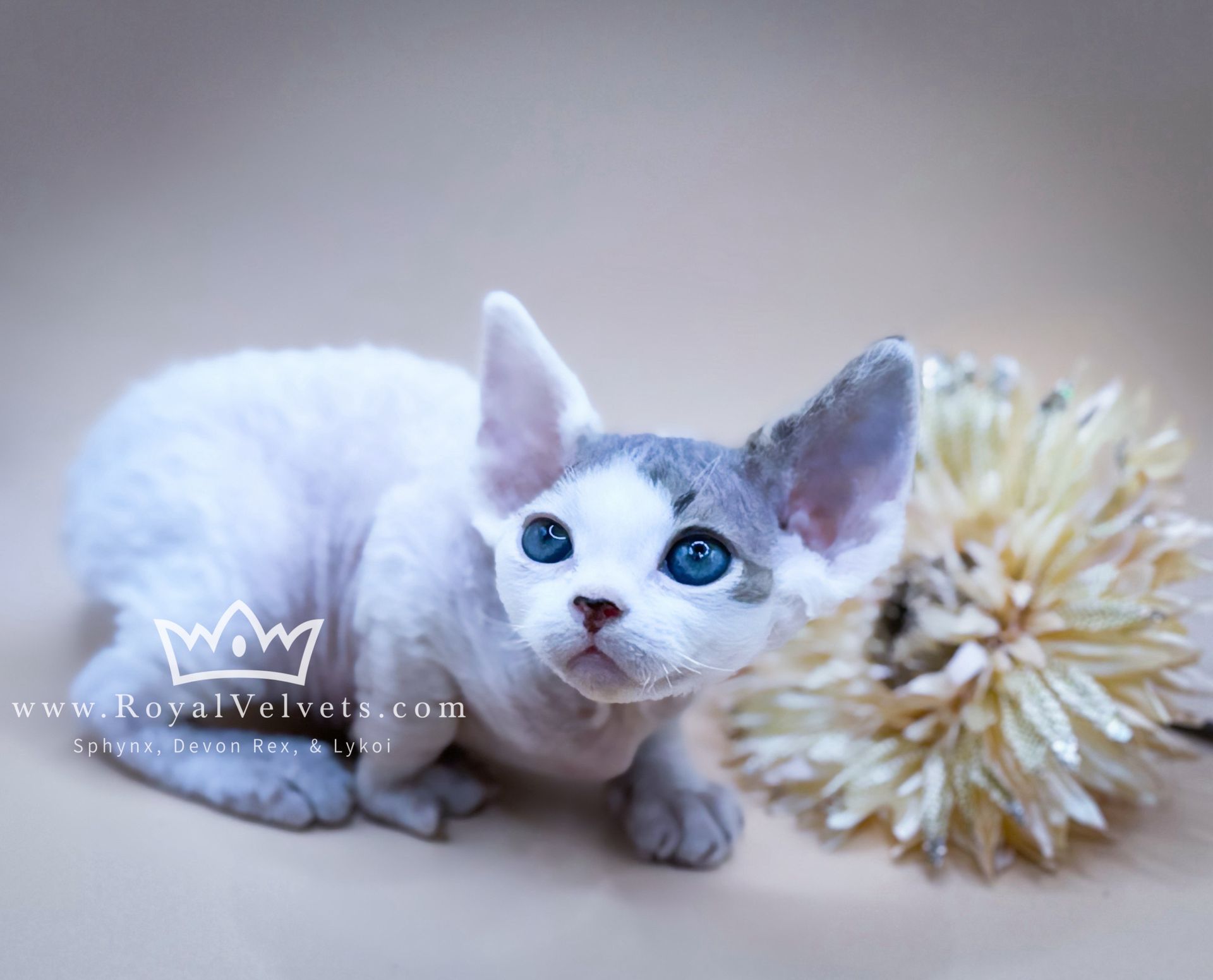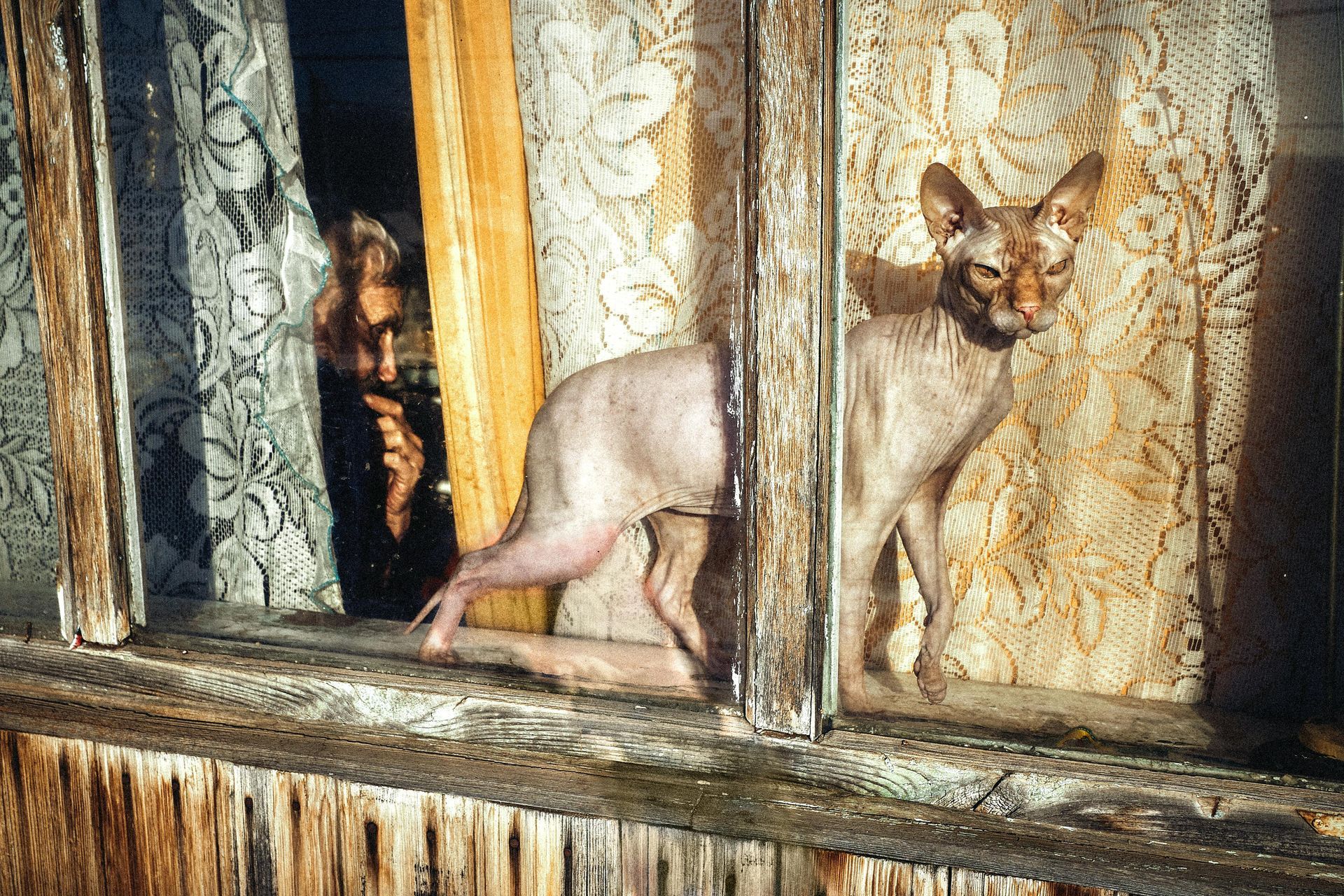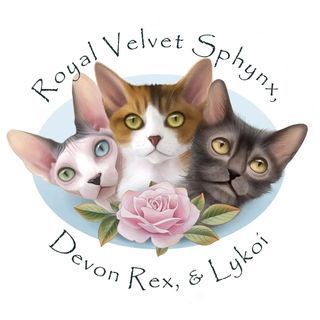Sphynx cats, with their arresting appearance and charming personalities, have become a phenomenon in the feline world. While you might recognize them for their distinct lack of fur, there's so much more to these cats than meets the eye. Dive into these intriguing facts that set the Sphynx apart.
1. A History Unlike Any Other
The Sphynx's story begins not in the vast deserts of Egypt, as many assume, but in the colder climates of Toronto, Canada. Back in 1966, a domestic cat gave birth to a hairless kitten due to a natural genetic mutation. This event marked the genesis of the Sphynx breed. Over the years, careful breeding has helped to enhance and solidify the distinct traits of the Sphynx. While they are a relatively new breed, they have quickly gained immense popularity, captivating the hearts of cat enthusiasts around the world. Their history reminds us of the unexpected twists and turns of genetics and the ever-evolving world of feline breeding.
2. Sphynx Cats Aren’t Actually Hairless
Despite the popular belief, Sphynx cats aren't completely bald. They're covered in a fine layer of fuzz, making their skin feel like suede or peach fuzz. This downy fur provides a minuscule amount of insulation. It's this unique skin texture that makes many describe the experience of touching a Sphynx as similar to feeling warm suede or perhaps even a heated chamois cloth. Moreover, due to the lack of a thick fur coat, their body warmth is easily felt, making snuggles with them especially cozy during colder months. Yet, this feature requires potential owners to be mindful, as these cats may seek warmth more actively and prefer cozier spots around the house.
3. Warm to the Touch
One of the first things people notice when they touch a Sphynx cat is their warmth. Unlike other cats covered in a layer of fur, the Sphynx's exposed skin absorbs and radiates heat more directly, making them feel warmer to the touch. This sensation can be quite pronounced, especially in cooler environments.
While their body temperature is comparable to other felines, the lack of fur makes the warmth more apparent to our senses. However, this also means Sphynx cats can lose heat more rapidly. Their love for cozy spots is a natural behavior to maintain body warmth. They are often found seeking out the sunniest spots in the house, nestling into blankets, or even cuddling up to other pets and humans. This innate tendency to seek warmth not only keeps them comfortable but also deepens the bond they share with their human companions, who they see as a source of warmth and affection.
4. The Lounging Lovers
For those who haven't been graced with the company of a Sphynx, it might come as a surprise to learn that they are incredibly affectionate, often described as "dog-like" in their need for attention and companionship. Their friendly demeanor and warmth-seeking tendencies make them perfect snuggle companions.
Due to their lack of a fur coat, Sphynx cats naturally gravitate towards warmth. This means they absolutely adore cuddling, whether it's under the covers, on a sunlit windowsill, or nestled on a warm human lap. When they aren't soaking up the sun or seeking warmth, you'll find them playing or lounging around with their family members, be it human, feline, or even canine.
It's also worth noting that their social nature extends beyond the confines of home. Many Sphynx owners recount tales of their feline friends warmly greeting guests, eagerly partaking in family activities, or simply enjoying being the center of attention. Their curious and sociable nature combined with their distinct appearance often makes them the star of any gathering.
5. Natural Climbers with Muscular Bodies
Don't be fooled by their slender looks; the Sphynx is a bundle of muscles. Their agility and strength make them excellent climbers, and they're always on the prowl for a high vantage point.
At first glance, the Sphynx's lean and muscular physique stands out. It's not just for show; these cats possess an agility that often catches many off guard. With a strikingly athletic build, they are natural climbers and love to explore vertical spaces. Don't be surprised to find them perched on the highest shelf or gracefully navigating a cat tree.
Their lack of fur allows their toned musculature to be clearly visible, giving them a statuesque appearance. This defined musculature isn't just about aesthetics. It provides the strength they need for their acrobatic endeavors, from darting around the house in playful bursts of energy to mastering challenging jumps with ease.
Another fascinating attribute is their strong and dexterous paws. These are used not only for climbing but also for holding toys, picking up small objects, or even opening doors.
Their coordinated movements and inquisitive nature make interactive toys and climbing apparatuses a great choice for stimulating both their body and mind.
Given their active and playful nature, it's a good idea to have dedicated play sessions to keep your Sphynx engaged and maintain their physical fitness. They thrive in environments where they can channel their energy constructively and bond with their families during playtime.
6. Maintenance Can Be Misunderstood
While it's a common misconception that the hairless Sphynx requires little to no grooming, the reality is quite different. Without the protective layer of fur, their skin produces oils that aren't absorbed by hair, leading to a buildup that can cause skin problems if not regularly cleaned.
Bi-Weekly to monthly baths are recommended for these feline beauties to prevent oil buildup and keep their skin healthy. When bathing a Sphynx, it's essential to use a gentle, cat-specific shampoo and ensure they are dried thoroughly afterward, paying special attention to the creases in their skin.
Moreover, their ears also produce more wax since there aren't any hairs to prevent the accumulation of dirt and debris. Regular ear cleaning, using a vet-approved solution, will keep infections at bay and ensure your Sphynx's ears remain in tip-top shape.
Their nails and the skin between their toes can also get oily and require regular cleaning. Care should be taken to ensure no moisture remains between their toes, as this can lead to fungal infections.
Despite their grooming needs, many Sphynx owners find the bonding time during these maintenance routines to be quite special. It provides an opportunity for closeness, building trust, and ensuring your cat feels pampered and loved.
7. Expressive and Eager Ears
The Sphynx's distinctive large ears aren't just a standout feature in terms of appearance; they play a pivotal role in their communication and expression. Spanning an impressive width and standing upright, these ears can rotate, twitch, and move in response to a variety of stimuli.
These feline friends use their ears to signal their mood and intentions. For example, when a Sphynx is curious or alert, their ears will be perked up, standing tall and forward.
However, if they are feeling threatened or annoyed, the ears might rotate to the side or flatten backward.
The size of the Sphynx's ears also enhances their hearing abilities. They can pick up on even the faintest sounds, whether it's the rustling of a treat bag or the distant chirping of birds outside. This acute sense of hearing combined with their inquisitive nature often makes them quick to respond to any intriguing sound around the home.
Additionally, the absence of hair in their ears means there's nothing to dampen or muffle sounds, potentially making their hearing even sharper. However, this also means that owners should be diligent about cleaning their ears, as mentioned earlier, to prevent any buildup or potential infections.
Whether they're using their ears to express curiosity, contentment, or caution, the Sphynx's expressive ears are a testament to their communicative and attentive nature.
8. Their Skin Tells a Story
The skin of a Sphynx is a canvas that exhibits a myriad of colors, patterns, and textures, resembling those of their furred counterparts. Just because they lack a full coat doesn't mean they lack the defining patterns and markings that make each cat unique!
When you stroke the skin of a Sphynx, you might notice a variety of tactile sensations, from the velvety softness of their sparse fuzz to the occasional wrinkle or fold. Their skin feels warm and smooth, akin to human skin, but with its own feline signature.
One fascinating aspect of the Sphynx breed is that their skin color often mirrors what their fur might have looked like. This means that if a Sphynx were to have a coat, it could be tabby, calico, tortoiseshell, or any other traditional feline pattern. Hence, you might come across a Sphynx with faint stripes, spots, or patches that allude to these patterns. The patterns and colors on their skin can be a topic of intrigue and admiration. It's like a treasure hunt, deciphering the beautiful markings and imagining the tales they might tell if they could speak. The wrinkles, especially around the forehead and shoulders, add another layer of charm and character to these enigmatic felines.
9. They're Quite the Chatterboxes
Sphynx cats are notorious for their vibrant personalities and vocal tendencies. If you're looking for a quiet, demure feline friend, the Sphynx might surprise you with its diverse range of sounds! These cats have no qualms about expressing their thoughts, wants, and needs.
From soft, melodious purrs when they're content, to a series of chirps and trills when they're playful or curious, a Sphynx cat ensures you're always tuned in. It's not unusual for them to engage in 'conversations' with their humans, responding with a series of clicks, meows, and even the occasional yowl. Their vocal repertoire is vast, and they're never shy about using it.
This communicative nature is just another testament to their sociable and interactive personalities. Their sounds can be a source of endless entertainment and bonding. Whether they're alerting you to an empty food bowl, commenting on the birds outside, or just wanting to chat about their day, their vocalizations are an integral part of their charm.
10. Not Always Sunbathers
While the sleek and nearly naked appearance of the Sphynx cat might suggest they're natural sun worshippers, the reality is a little more nuanced. Due to their lack of protective fur, Sphynx cats are more susceptible to the elements than their furry counterparts.
The sun's rays can be both a blessing and a curse for these unique felines. On one hand, they love to bask in the warm sunlight, soaking up its comforting warmth, especially given their higher body temperature. The sun can be a great source of pleasure for them, and many Sphynx owners can attest to their pets seeking out sunny spots around the house for a quick sunbath.
However, their hairless skin is more vulnerable to sunburn. Prolonged exposure without protection can result in a painful sunburn, and repeated sunburns can lead to more severe skin conditions or complications. Therefore, it's essential for owners to monitor their Sphynx's sunbathing habits closely. Some owners even apply cat-safe sunscreen or dress their Sphynx in light clothing to protect them from the sun's harmful rays.
In contrast, their lack of fur means they can get cold quickly, so it's not uncommon to find them snuggling under blankets, seeking out warm spots, or even cuddling up with their humans for some shared warmth.
Conclusion
The Sphynx cat, with its almost otherworldly appearance and captivating personality, has earned its place in the hearts of many. Their unique characteristics, from their suede-like skin to their chatty nature, make them a delightful and intriguing companion. Each trait we've discussed paints a vivid picture of a breed that, while lacking in fur, is overflowing with charm and charisma.
Beyond their physical attributes, it's their undying affection, intelligence, and playful demeanor that truly set them apart. While they might require a bit more care in terms of maintenance and protection from the elements, the reward of having a Sphynx in your life is immeasurable.
For those considering welcoming a Sphynx into their home, understanding and appreciating their unique qualities will only deepen the bond you share. And for those who are simply admirers from afar, it's easy to see why the Sphynx continues to capture attention and admiration worldwide.
Fascinated by the world of Sphynx cats? Explore deeper
insights into this breed and others by navigating to our detailed breed articles. If the Sphynx's allure has captured your heart,
join our waiting list at Royal Velvets for a
feline companion unlike any other.


